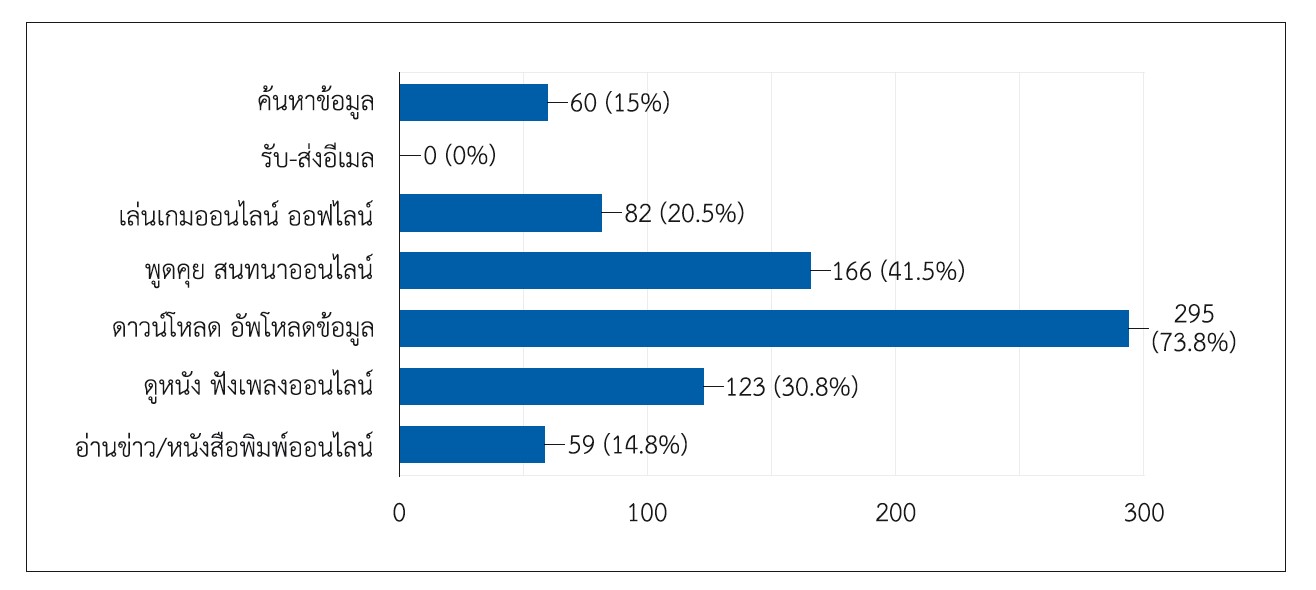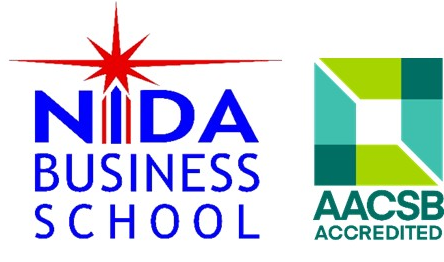Relationship between knowledge, understanding and behavior of committing offenses under the computer-related offenses of informal workers in Nakhon Sawan Province
Keywords:
Cognition, Unacceptable Behavior, Computer Crimes ActAbstract
The study examined 1. The level of knowledge and understanding of the Computer Crimes Act of informal workers in Nakhon Sawan province, 2. The behavior regarding the Act, and 3. The relationship between knowledge and offender behavior. The sample of this study included 400 informal workers. The questionnaire collected data using test hypotheisis significant .05 and using by descriptive statistics proportion with Mean, Standard Deviation, and Test hypothesis with Independent t-test, F-test and Pearson's Product Moment Correlation.
The findings were as follows: Most respondents were male, 40-44 years, and college-educated. Downloading and uploading data took over 4 hours. When considering each aspect, it was found that:
1) Knowledge and understanding: most respondents were well-informed.
2) According to the Computer Crimes Act in Nakhon Sawan province, most informal workers behaved at the never level.
3) Knowledge and understanding of the Computer Crimes Act affected offense behavior with an inverse relationship. If informal workers in Nakhon Sawan province had high knowledge and understanding, they would be less guilty, which was the opposite relationship.
References
Benjarat Thararak. (2009). Knowledge and Understanding of the Crime Act Computer Crimes Act 2007 among University Office Personnel Chiang Mai University. Chiang Mai: Chiang Mai University.
Bloom, Benjamin S., et al. (1971). Hand book on Formative and Summative Evaluation of Student Learning. New York: Mc Graw-Hill Book Company
Carter V. Good. (1973). Dictionary of Education. New York: McGraw Hill.
Chanantida Mooncheep., & Kampanat Wongwattanapong. (2021, October). Education, knowledge, attitude and practice. According to the law on computer crimes, 2017, of local people, a case study of local government organizations in Khiri Mat District Sukhothai Province Academic research, 4(4), 39-52.
Goldenson, Robert M. (1984). Longman Dictionnary of Psychology and Psychitry. New York: Longman.
Kantarat Lekkaew., Chairat T. Charoen., & Weeraphan Siririt. (2015, May). Knowledge, attitudes and practices related to the Computer Crimes Act B.E. 2550. Of undergraduate students Chiang Rai College. Veridian E-Journal, Silpakorn University, 8(2), 2809–2819.
Karuna Thakaew., Jakrit Ponginwong., & Duangporn Boonliang (2020, January). Knowledge and understanding of the use of social media under the Crime Act. about computers 2007 (2nd edition) 2017 of secondary school students under Office of the Basic Education Commission Ministry of Education in Khon Kaen province Academic. Journal of Thammasat University, 21(1), 29-38.
Nadtikarn Thongboonrit. (2009). Perception and understanding of offenses under the Act On computer offenses 2007 among internet cafe users in Muang District, Chiang Mai. Chiang Mai: Chiang Mai University.
Orasa Namsai., Pichet Chantawee., & Weerachai Sangchai. (2013). Computer use behavior and Internet at risk of offenses under the Crime Act About computers in 2007 of Songkhla Rajabhat University students. Songkhla: Songkhla Rajabhat University.
Pariyawit Chucherd., & Rewadee Sakdulyatham. (2016). Awareness and understanding of offenses under Computer Crime Act 2017 of people in the provinces of Nonthaburi and Bangkok. Bangkok: Ratchaphruek University.
Pattanaporn Kowaphattanakit, et al. (2017). Research Project on Criminal Behavior Trends. related to information technology. Bangkok: Rapeephatthanasak Research and Development Institute Office of the Court of Justice.
Piyachat Kasetrattanachai. (2009). Behavior of offenses under the Act on Offenses about computers in 2007 of Mathayom Suksa 2 students in schools under the jurisdiction of Nonthaburi City Municipality. Bangkok: King Mongkut's Institute of Technology Ladkrabang
Sirithorn Charoenrat., & Chadarat Pipattanan. (2009, July). Knowledge about offenses. computer of undergraduate students Department of Computer Science Private university in Bangkok. University of the Thai Chamber of Commerce, 29(3), 102–112.
Siyanin Sakdulyatham. (2008). Knowledge, impact assessment and user behavior trends. Internet about the Computer Crimes Act 2007. Bangkok: Chulalongkorn University.
Sudasawan Ngammongkolwong. (2012). Perceptions and awareness of students about crime problems. The computer for use on the Internet network. Vocational and Technical Studies, 2(4), 70–80.
Taro Yamane. (1973). Statistics: An Introductory Analysis. (3rd Ed.). New York. Harper and Row Publications.
Thai Rath Online. (2022). In 2021, high-tech defamation cases were arrested by police at the police station over 10,000 cases. Retrirved February 28, 2022 from https://www.thairath.co.th/news/crime/2319207
Thodsaporn Thipnom., & Somboon Chaochaikhong. (2020, January). Recognition of the law on offenses. computer of Nakhon Phanom Technical College students. Graduate Studies, 17(76), 317-325.

Downloads
Published
How to Cite
Issue
Section
License
Copyright (c) 2023 NIDA Business School, National Institute of Development Administration

This work is licensed under a Creative Commons Attribution-NonCommercial-NoDerivatives 4.0 International License.



